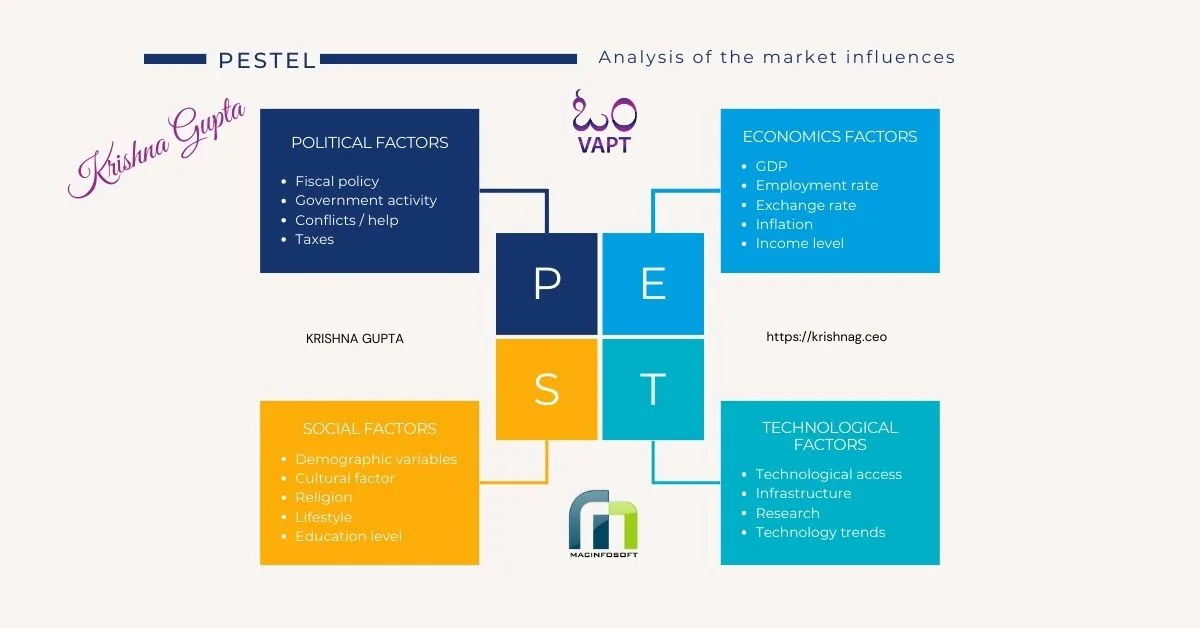A PESTEL analysis is a framework used to assess the external macro-environmental factors that can impact a country’s business and economic environment. Let’s take a look at the PESTEL factors specific to Estonia:
- Political Factors: Estonia has a stable political environment with a parliamentary republic system. The country is a member of the European Union, which provides access to the EU market and benefits from EU policies.
- Opportunities:
- A stable political environment with a strong commitment to democracy and the rule of law.
- Estonia’s Membership in the European Union provides access to a large and integrated market and funding opportunities.
- Pro-business policies and low levels of corruption.
- The e-residency program allows entrepreneurs worldwide to establish and manage businesses in Estonia.
- Threats:
- Geopolitical tensions in the region, particularly with Russia, can create uncertainty and instability.
- Dependence on the EU for trade can make Estonia vulnerable to external shocks.
- Potential for political polarisation and populism.
- Economic Factors: Estonia has a developed and open-market economy. It has embraced digitalisation and e-governance, contributing to its economic growth. Key sectors include information technology, manufacturing, services, and tourism.
- Opportunities:
- Strong economic growth and rising disposable incomes.
- Skilled and educated workforce with high levels of digital literacy.
- Government incentives for research and development.
- Well-developed digital infrastructure.
- Threats:
- Small domestic market limits the growth potential for some businesses.
- Fluctuations in global currency markets can impact exports and access to finance.
- High labour costs compared to some other European countries.
- Potential for economic slowdown due to global economic factors.
- Sociocultural Factors: The Estonian society values education, innovation, and technological advancement. There is a strong emphasis on digital literacy, and the country has a high internet penetration rate. The population is relatively small but highly educated.
- Opportunities:
- Open and accepting culture towards diversity and innovation.
- Growing awareness of social responsibility and sustainability trends.
- High digital penetration and strong adoption of technology.
- Threats:
- Small and ageing populations can create challenges for talent acquisition and economic growth.
- A lack of diversity in the Estonian workforce can limit creativity and innovation.
- Cultural differences can create barriers to entry for foreign businesses.
- Technological Factors: Estonia is known for its advanced digital infrastructure and e-services. The country strongly focuses on technological innovation and has nurtured a vibrant startup ecosystem. It has also implemented various e-governance initiatives.
- Opportunities:
- They are a thriving technology ecosystem with a strong focus on research and development.
- Government support for digital infrastructure development.
- Robust e-government infrastructure provides efficient administrative services.
- Growing adoption of artificial intelligence and other emerging technologies.
- Threats:
- Rapid technological changes can lead to product obsolescence and require continuous adaptation.
- Cybersecurity threats can put data and financial information at risk.
- Lack of access to technology and digital skills can affect growth and competitiveness.
- Environmental Factors: Estonia is committed to environmental sustainability and has tried transitioning to renewable energy sources. The country has diverse natural landscapes, including forests, lakes, and coastal areas, contributing to its eco-tourism attractiveness.
- Opportunities:
- Strong commitment to sustainability and environmental protection.
- Growing demand for eco-friendly products and services.
- Government incentives for renewable energy and resource efficiency.
- Beautiful natural environment with potential for tourism development.
- Threats:
- Climate change and extreme weather can disrupt business operations and supply chains.
- Increasing environmental regulations can impose additional costs and compliance requirements.
- Limited access to natural resources.
- Legal Factors: Estonia has a transparent legal system and business-friendly regulations. It has implemented several reforms to attract foreign investment and promote entrepreneurship. The country also has a favourable tax environment.
- Opportunities:
- Simple and transparent business regulations.
- Strong intellectual property rights protection.
- An efficient legal system with low levels of corruption.
- Access to the EU legal framework provides harmonisation with international standards.
- Threats:
- The complex and ever-changing legal landscape can be challenging to navigate.
- Lack of awareness about legal rights and obligations can put businesses at risk of penalties.
- Potential for government intervention in the economy.
Analysing these PESTEL factors can provide valuable insights into the opportunities and challenges of doing business in Estonia.
By understanding the PESTEL factors, businesses and organisations in Estonia can develop strategies to capitalise on opportunities and mitigate risks. They can also make informed decisions about their investment, marketing, and operational activities.
Here are some additional factors to consider:
- The impact of PESTEL factors may vary depending on the specific industry, size, and location of the business or organisation.
- It is essential to monitor the external environment and adapt strategies accordingly regularly.
- Networking with other businesses, industry associations, and government agencies can provide valuable support and resources.
By proactively managing PESTEL factors, businesses and organisations in Estonia can increase their chances of success and contribute to the country’s economic and social development.
